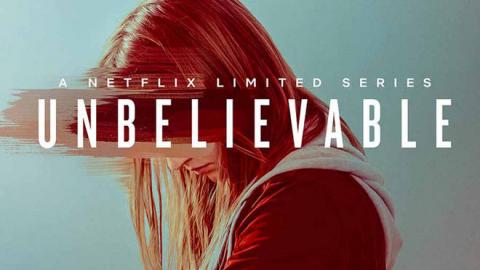Curiosity Killed Movie Trailer Content
Share with friends
The problem with "Mystery Box" marketing.
The recently released trailer for 10 Cloverfield Lane has everyone talking, not necessarily about whether it will be good or bad, but what the heck it’s actually about. You see, 10 Cloverfield Lane’s marketing relies on a strategy commonly known as the “mystery box,” where marketers deliberately withhold as many details as possible for the purpose of creating intrigue.
The film comes from Bad Robot Productions (J.J. Abrams), which specializes in the “mystery box” technique, known for producing such hush-hushed works as Lost (which is widely credited with starting the “mystery box” phenomenon), Super 8, Star Wars: The Force Awakens, Star Trek Into Darkness and of course Cloverfield, for which 10 Cloverfield Lane will be a companion film. Bad Robot isn’t the only studio to bank on this method. Shows like American Horror Story and The Event and films like Prometheus have also adopted the tactic, and its use is only becoming more widespread.
Watch The Event's particularly unsubtle version of mystery box marketing here:
With the exception of The Force Awakens (93% on Rotten Tomatoes), pretty much all of the aforementioned examples are associated with disappointment or even outright failure in the public eye. Entertainment Weekly's Ken Tucker called The Event's pilot "an irritating tease," criticizing the overly convoluted and obfuscated storyline. American Horror Story: Hotel, the most recent incarnation of the F/X miniseries, received far more criticism than previous seasons as well. Richard Lawson of Vanity Fair called the show in general "juvenile" and "antisocial." Cloverfield, Star Trek Into Darkness and Prometheus left audiences similarly disappointed.
In their bid for attention, the marketing campaigns for these spectacles set themselves up for failure by creating unmeetable expectations. The hype machine can be a valuable thing, but when you train people’s brains to expect something a lot cooler and more unique than you’re actually delivering, hype can be your own worst enemy.
Take the trailer for the original Cloverfield.
The first thirty seconds give the impression that it’s an indie comedy about a group of college kids throwing a farewell party. Once the trailer reveals the film as a disaster movie, its genre-related imagery is limited to a distant explosion and a deeply unsettling shot of the Statue of Liberty’s head crashing onto a busy street. Even after that, the trailer doesn’t even have a title attached to it, ensuring that your only possible reaction is “What the hell was that?”
No matter what you think of the movie, the Cloverfield trailer hits like a bomb going off, and it was certainly effective in getting a lot of people to see it (it was the first movie in 2008 to gross over $100 million). But the pre-release buzz was considerably more positive than its reception. It wasn’t widely hated, per se, but a common thread of disappointment ran throughout the critical reviews, mostly with the fact that it adhered too closely to the standard kaiju film format with only the handheld camerawork setting it apart from Godzilla and its ilk. Most notably, people weren’t too fond of the main monster’s "uninspired" design.
It was from of the monster, however, that drove most people crazy with curiosity. The film was rumored to be everything from a new take on the alien invasion flick to a live-action Voltron adaptation, so it's not surprising that viewers were disappointed by just another giant monster. Innovative marketing needs to be matched by innovative content, otherwise you get something along the lines of Geraldo Rivera's infamous broadcast The Secrets of Al Capone's Vault, where your reward for sitting through two hours of buildup is literally a pile of dirt.
When we’re denied information, we fill in the blanks with our wildest dreams. We imagine that inside there is something unlike anything we’ve seen before. Unfortunately, that’s usually not the case, probably because so much ingenuity is poured into the marketing and secret-keeping that there isn't as much left for the actual product.
Star Trek: Into Darkness provides one of the more infamous examples of the “mystery box” method backfiring. When trailers were released, there was a great deal of fan speculation that the main villain, whose identity was being kept under wraps and only referred to in press materials by the mysterious name “John Harrison,” was actually Khan from Star Trek II: The Wrath of Khan. J.J. Abrams, the film’s director, caught wind of this and publicly denied that John was Khan. This turned out to be a bold-faced lie, as John was in fact Khan, and the film recycled several important story beats from The Wrath of Khan (poorly, to boot). Audiences were understandably miffed at being straight-up lied to, and that certainly contributed to to Into Darkness being named the worst Star Trek movie of all time by Star Trek fans. Yes, worse than Nemesis.
Amidst these stumbles, there’s one prominent example of “mystery box” marketing working in a film’s favor: Star Wars: The Force Awakens, which has made more money than God. Here's just a short list of rumors that were floating around before the film's release. Casting announcements were parceled out slowly, details about new characters’ backstories were kept as quiet as possible and even the most basic details of the plot weren’t released until the film came out. When people finally saw it, it was generally agreed upon that The Force Awakens cribbed quite a few ideas from the first entry A New Hope, particularly in the parallels between Rey and Luke, Poe and Han and Kylo Ren and Darth Vader. These similarities weren’t seen as negatives, however: if anything, they’re what made the film as widely adored as it is.
So if Into Darkness was rejected en masse by a disappointed fanbase, why was The Force Awakens embraced when it employed similarly cloaked marketing tactics and delivered similarly non-innovative content? A lot of that has to do with the material in question.
Star Trek has always been about boldly going where no one has ever gone before, so the “mystery box” marketing method actually sort of makes sense for it, by getting audiences hyped up for a brand new adventure. Therefore, it’s easy to understand why we’d feel betrayed to find out we were being sold something we'd bought before. Star Wars, conversely, has always leaned heavily on its influences, such as Westerns and pulpy space adventure comics, and has been content with its place as a simple yet satisfying Hero’s Journey story. The fun of Star Wars isn’t really in the big surprises, so the hype-maxing marketing was just the icing on the cake. People were pretty much going to see and love The Force Awakens before they ever heard a word of the plot, making it a success almost in spite of the “mystery box” rather than because of it.
With that in mind, it’s probably best to keep your expectations for 10 Cloverfield Lane tempered for now. In a best-case scenario, it’ll be a decent little sci-fi thriller that leans on its strong cast and claustrophobic setting rather than “shocking” twists. It's unlikely that there's anything too amazing lurking outside the house, because think about it—what could possibly be in the box that's more exciting than the mystery itself?




